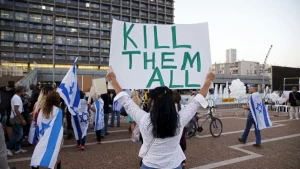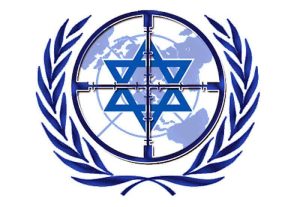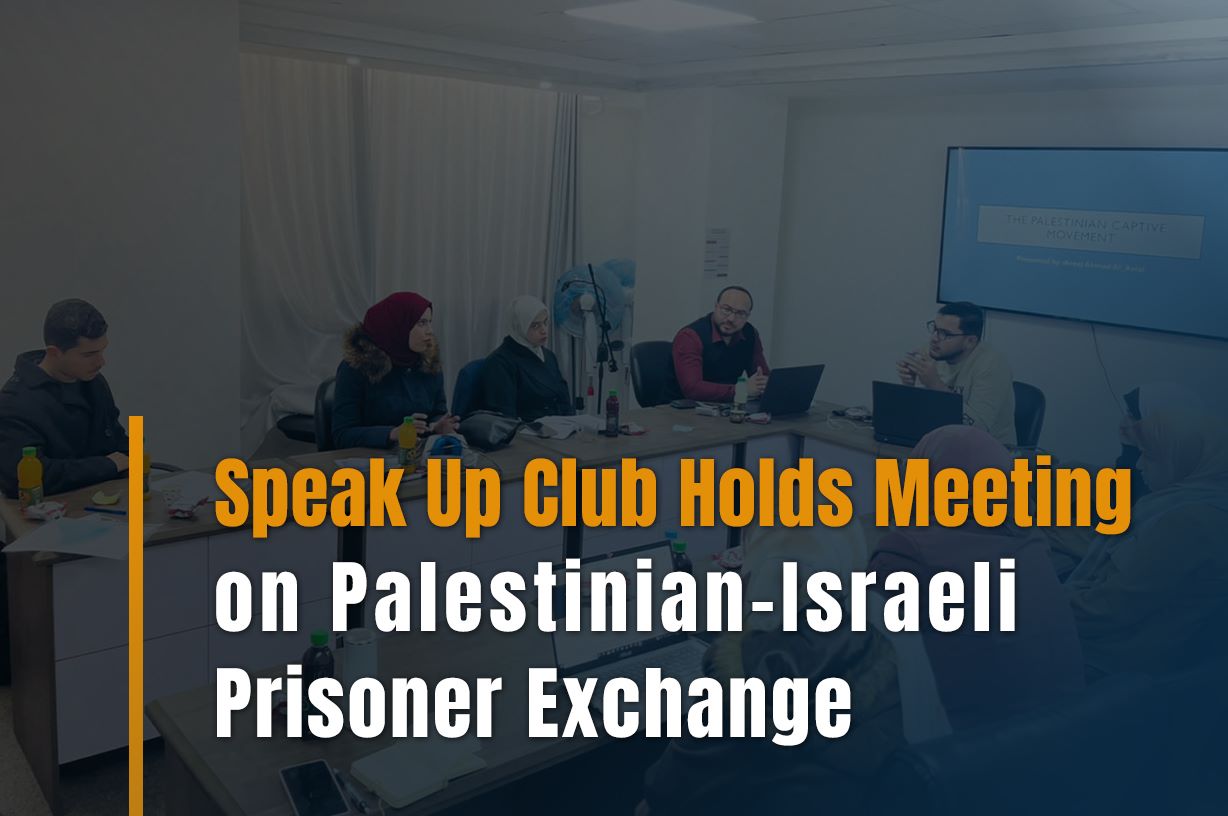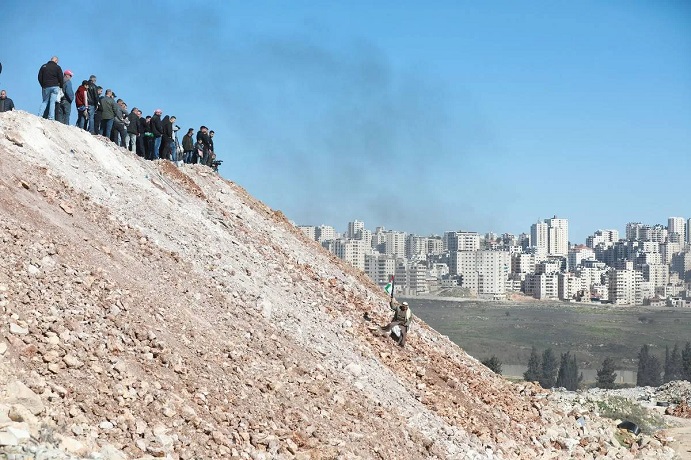Speak Up Club held a discussion meeting on Saturday, January 28, 2022, on the Palestinian-Israeli prisoner exchange file.
A number of English-speaking Palestinian journalists and activists in Gaza attended the meeting.
It focused on highlighting the racism of the Israeli occupation towards Palestinian prisoners on the one hand, and the captured Israeli soldiers in Gaza on the other hand.
For her part, activist Areej Al-Astal shed light on the reality of the Palestinian detainees inside the occupation prisons.
She said that about 4,700 Palestinian detainees are inside the occupation prisons, including 34 females, 150 minors, and 835 administrative detainees.
Al-Astal added that the Israeli occupation practices psychological, physical and sexual torture against the Palestinian detainees. The policy of medical neglect and solitary confinement is one of the policies it systematically commits against the Palestinian detainees.
Read: Speak Up Club Holds Meeting on Israeli Administrative Detention against Palestinians
Activist Nour Shnino talked about the history of the Israeli-Palestinian prisoner exchange file.
He said that the exchange of prisoners is one of the methods of resistance invented by the Palestinians in their resistance to the occupation, the latest of which was the Wafaa al-Ahrar deal in 2011, in which 1027 Palestinian detainees were liberated in exchange for the release of the Israeli soldier Gilad Shalit.
Israeli racism is not against Palestinians only

For her part, the activist Sahar Kalloub confirmed that the racism of the occupation is not against the Palestinians only, but the occupation practices its racism against the Israeli settlers too.
Kalloub added that the occupation’s procrastination in liberating the Israeli soldier, Avraha Mengistu, who is of Ethiopian origin, reflects the racist view of the occupation towards black people.
Another participant said that one of the manifestations of racism in the occupation is the division of Israeli society into classes A, B, and C. The upper classes enjoy greater rights than the lower classes.
In terms of Israeli settlements, some settlements enjoy a higher level of security than other settlements, based on the distribution of classes.
Resistance is a legitimate right

For his part, the activist Mohammad Shaaban talked about the legitimacy of the Israeli occupation and the current situation of Palestine.
He said that one of the conditions for accepting the Israeli occupation as a member of the United Nations and recognizing it as a state is its commitment to implementing the resolutions issued by the United Nations regarding the Palestinian issue, especially Partition Resolution (181) and Return Resolution (194). Despite the occupation’s pledge to implement these decisions, it has not yet committed to implementing them.
He referred to the legal status of the Palestinian resistance operations carried out by the Palestinian youth in response to the occupation’s crimes against the Palestinians, the last of which was the resistance operation carried out by a Palestinian young man against Israeli settlers in Jerusalem in response to the Israeli massacre in Jenin that led to the killing of 9 Palestinians and injury of others.
Shaaban said that international law, especially the four Geneva convictions, guarantees the right of any people under occupation to defend themselves by all means, including armed resistance.
It is worth noting that the Speak Up Club is an emerging media project within the Days of Palestine institution, which mainly focuses on discussing developments in the Palestinian arena and raising awareness about the Palestinian cause.
Read: Speak Up Club Holds Meeting on Israeli Ethnic Cleansing and Genocide in Palestine
Shortlink for this post: https://daysofpalestine.ps/?p=34444








